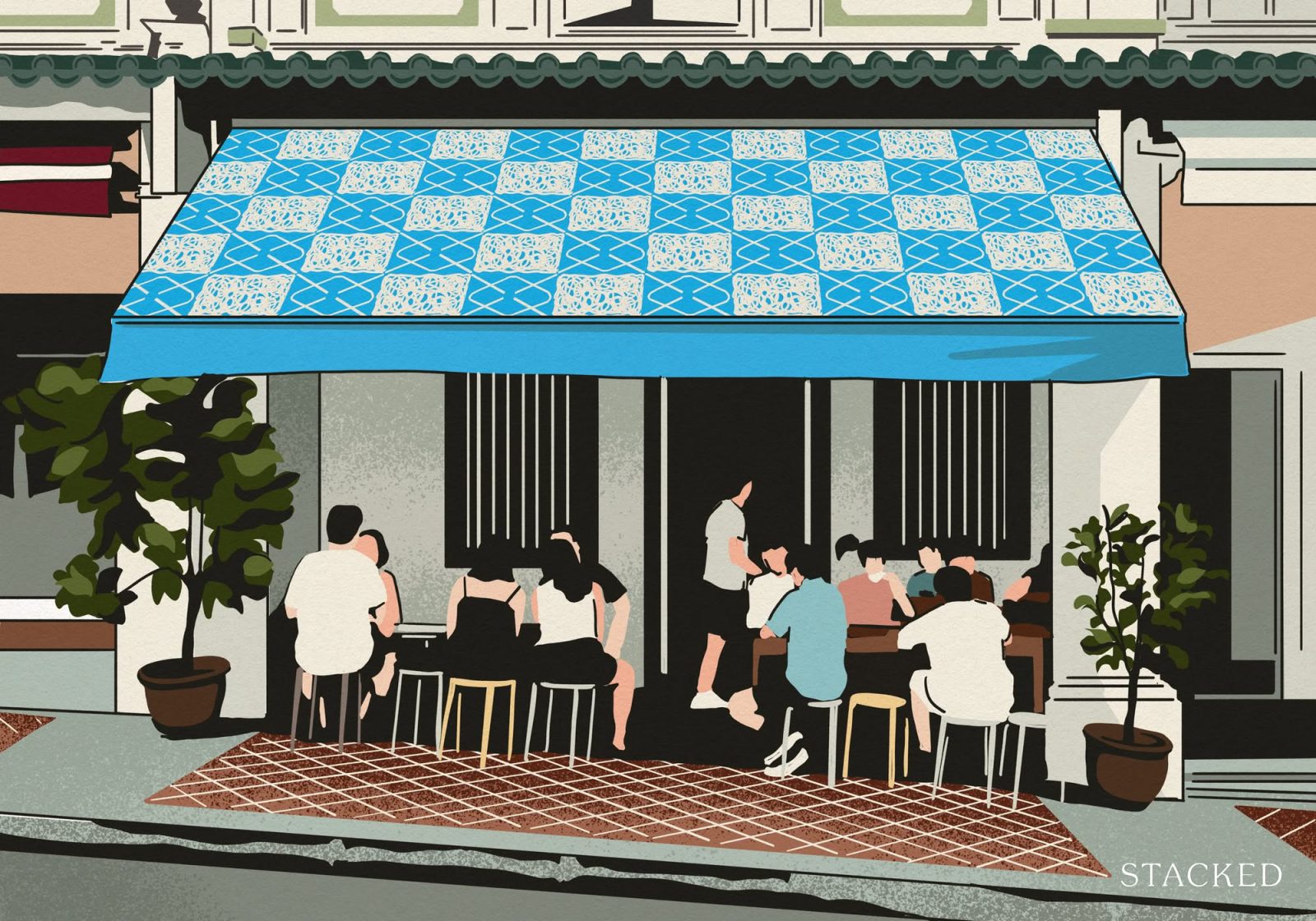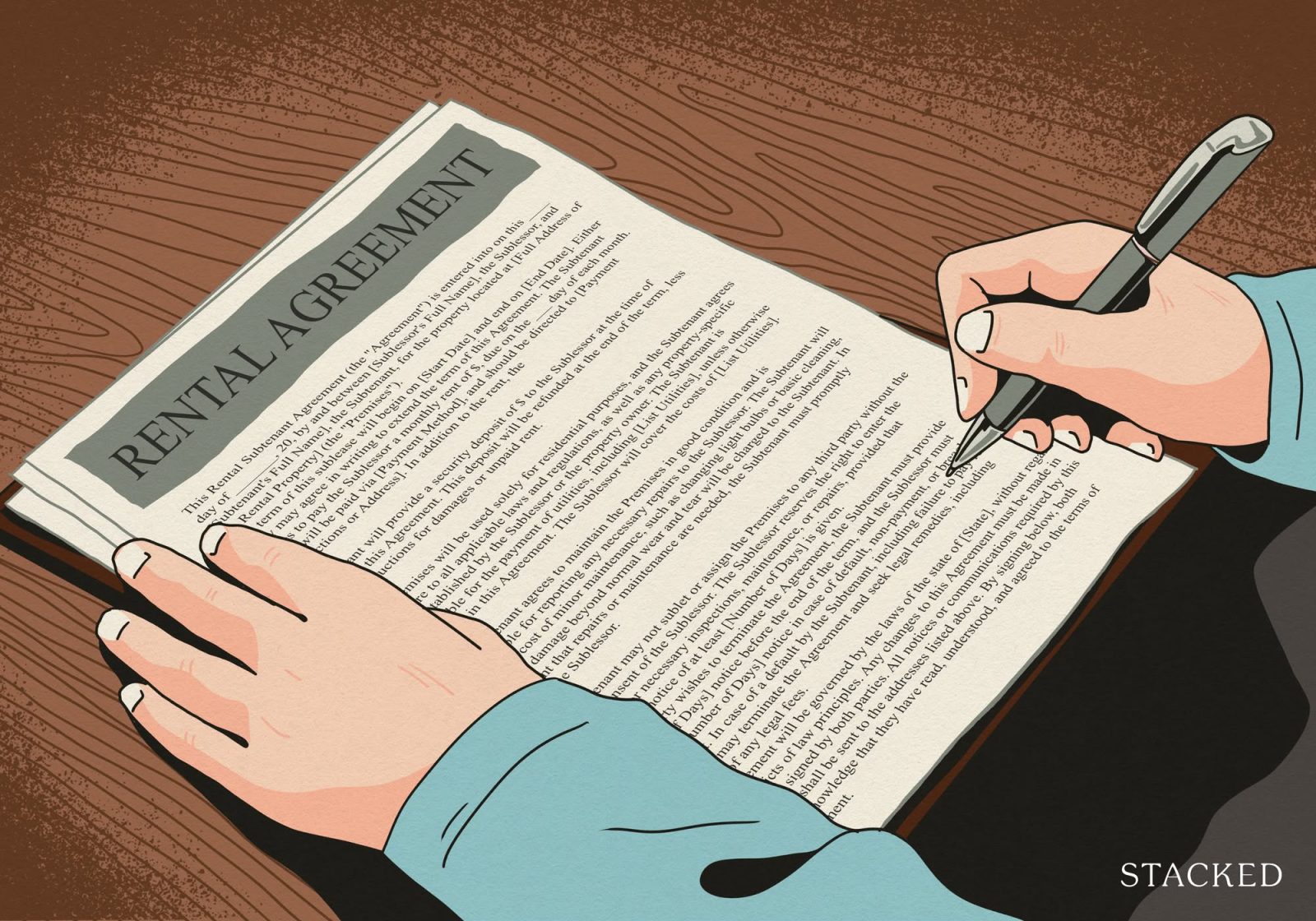They paid rent on time - and still got evicted. Here's the messy truth about subletting in Singapore


Most people assume that if you're running a cafe or living in a rental unit, and you've paid your rent on time every month, you're safe. However, if you're a subtenant (that is, someone who rents from a tenant rather than the landlord), that assumption can go very wrong.
The biggest problem? You don't really know what's going on between the landlord and the main tenant at times; and if the relationship fails, you're often the one dealing with fallout. Here are some such situations to be aware of, before you agree to take on the role of subtenant:
(As an extra, I'll be sharing a personal story about a subtenant of my own)
Maxi Coffee Bar has been operating at Ann Siang Hill since 2020. Some of you probably know it as well - it's the cafe with the blue-framed windows, known for their filter and speciality coffees (especially their cereal milk lattes). Maxi Coffee Bar wasn't the main tenant, but a subtenant at their location, which is not unusual for some businesses, such as F&B.

Then, on May 31, the main tenant abruptly broke their lease.
Even though they had nothing to do with it and had paid the main tenant properly, Maxi was told they'd need to vacate. A spokesperson at the cafe told us that: "We submitted transaction evidence that we had been paying our rent. But we realised that this rent was not forwarded to the landlord by our main tenant."
In the week that followed, the landlord granted, revoked, and shortened extensions in a roller-coaster series of events, until finally they were given till June 17 to move out: and this came in the form of just two days' notice, delivered in the middle of service at the cafe.
The cafe noted that: "All that the landlord has done is not nice, but I do not think it is illegal. We were simply and tragically collateral damage."
By the time Time Out Singapore reported on June 16 that Maxi would be shutting its doors, the cafe was already packing up, heartbroken.
The clearest, and perhaps most common example of this, is when main tenants don't actually have the permission to sublet.
You'll find discussions and examples of this in many places, like this Reddit thread. Do note that tenants explicitly cannot sublet HDB flats, so be careful if you receive such offers involving non-private properties.
The other problem though, is quite similar to what happened with Maxi Coffee. Sometimes, the main tenant breaks the rules and runs. Here, I can share a direct experience:
Between 2014 to 2017, I had a condo unit rented out to a foreign student. She had earlier been quite proactive, and as her other roommates left, she would recommend the place to others in her school (partly also because they were her friends and reliable, and she wanted a safe group of roommates). We had a good working relationship, and eventually, when she graduated, he wanted to stay on for a while. The agreement changed so that she would be the main tenant and could sublet.
This is where things started to go wrong. Prior to this, she wouldn't have sabotaged other tenants in the property because (1) they weren't subtenants and dealt with me directly, and (2) they were her friends from school.
But after graduation, she was dealing with subtenants who had a much less personal relationship with her; and beyond the necessary checks, I didn't interact too much with the subtenants.
Because of established trust, I failed to maintain my checks on her as a main tenant. So it was a bit of a shock when a year-and-a-half into this, she ghosted me and vanished; and we discovered (with the help of my long suffering agent) that she had been at risk of overstaying after losing her job.
She'd left after collecting rent from the two subtenants, who were now in a serious jam. One was a student whose exams were right around the corner, and the other had just landed a job and was attending a training facility nearby. If we hadn't worked something out (I had to accept a haircut on the stolen rent), all three of us would have been in a serious losing position; but I suspect the subtenants more so than me.
Which leads me to point out a serious issue for subtenants, when things go wrong:

Even if you were to take costly legal action, whatever the chances of success, the financial and emotional damage is done; and it won't solve your immediate issue of being effectively unhoused. Having to pay for a hotel for long periods hurts.

Not at all, and I would say subletting is far from rare in the private property market. Today, for example, I know several landlords who have units rented out to co-living companies, who have subtenants, and more often than not, their experiences have been positive (both the master tenants and the subtenants).
But if you are going to sublet, your need for caution is doubled. You need to inquire and check about the main tenant as best you can, and read the tenancy terms carefully. I know that sounds like a rather limited range of things you can do, and it is. That's why I'd lean toward being a main tenant whenever possible.
[[nid:719465]]
This article was first published in Stackedhomes.